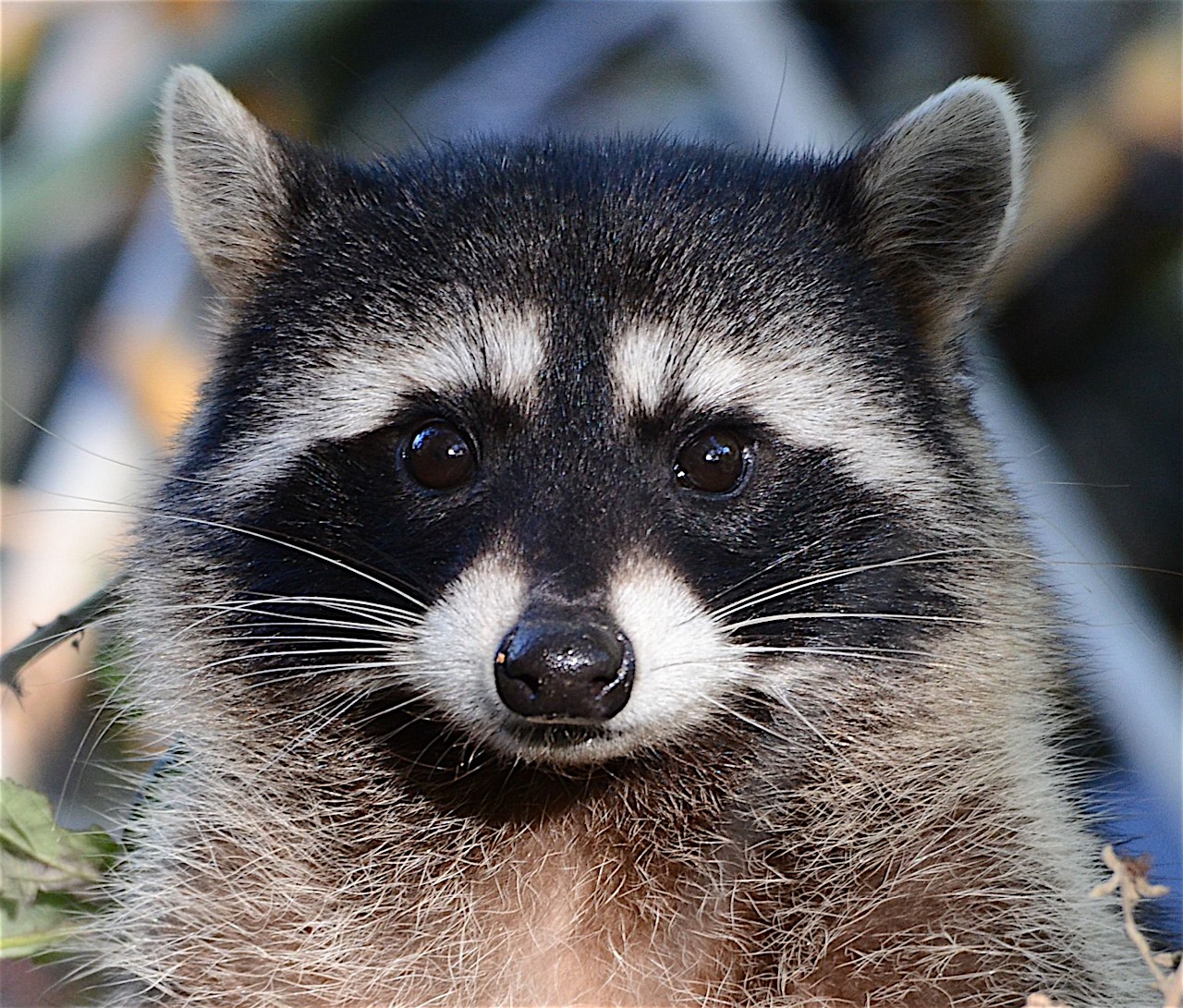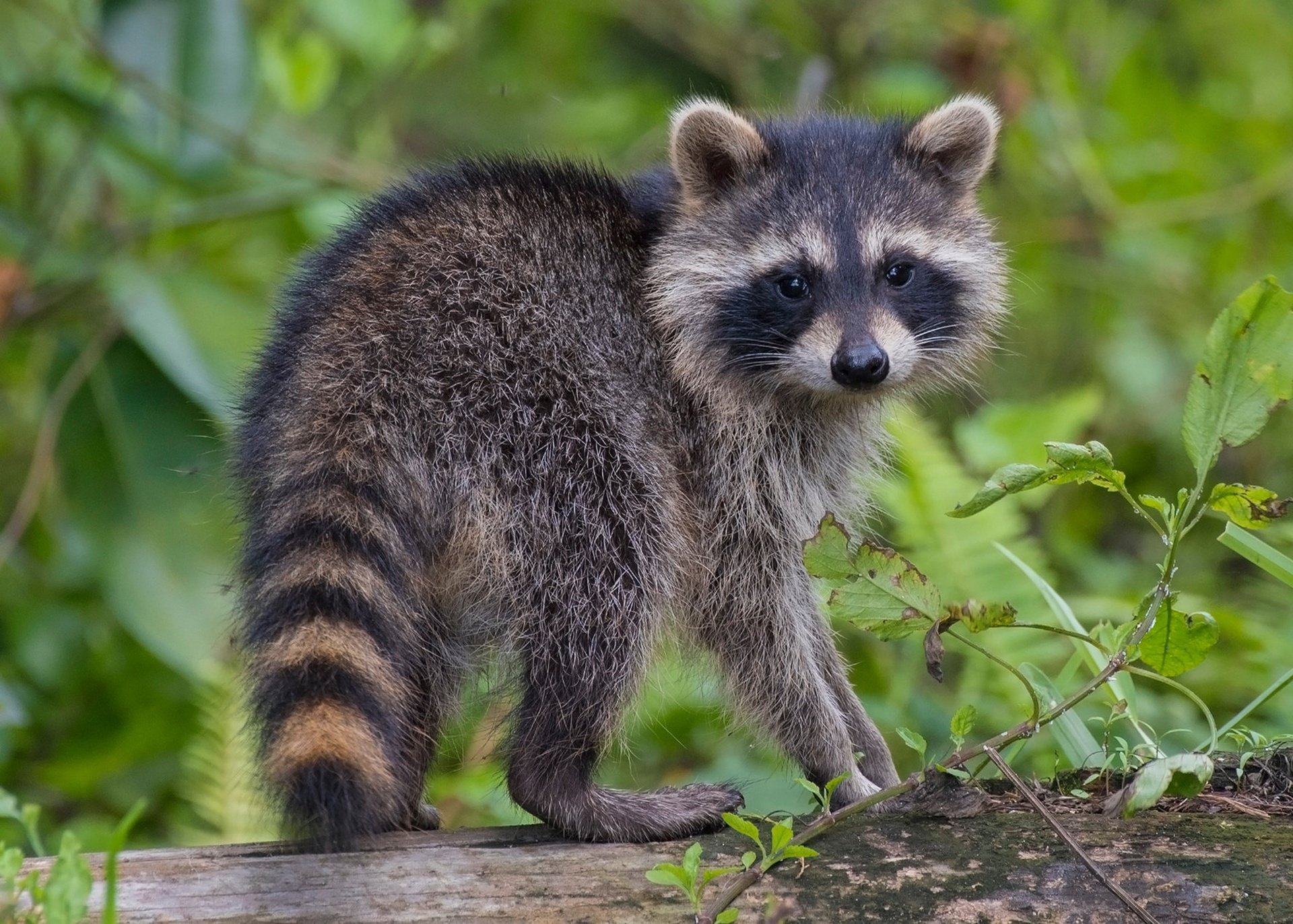Have you ever been startled awake by a truly strange, almost unearthly wail coming from your yard in the dead of night? If you have, there's a pretty good chance you've experienced the distinctive sound of a raccoon making itself heard. These little creatures, often seen as masked bandits, are far more vocal than many people give them credit for, and their calls can sometimes be quite alarming, almost like a cry for help or a heated argument.
It's a sound that, you know, can really make the hairs on your arms stand up, especially if you're not expecting it. Folks often describe it as a shriek, a squeal, or something that reminds them of a distressed animal. But what exactly is going on when you hear these piercing calls? Is it a warning, a sign of trouble, or just a regular part of their nightly activities?
This particular noise, the raccoon scream, is a common sound you might encounter, and it carries specific messages within their world. Understanding what these sounds mean can help you figure out what's happening just outside your window, or maybe even in your attic. We'll talk about these sounds, what they mean, and what you might want to do if you hear them.
- Is Drew Starky Gay
- Wright Beauty Academy Battle Creek
- Auntie Annes Mothers Day
- Vince Flynn Order Of Books
- Gender Reveal Odeas
Table of Contents
- Why Do Raccoons Make So Much Noise?
- The Many Sounds Beyond Raccoon Screams
- When Do You Hear Raccoon Screams?
- Raccoon Screams - Mating Calls or Fights?
- What Do Raccoon Screams Tell Us About Their Behavior?
- Decoding Raccoon Screams and Other Warnings
- How Can You React to Raccoon Screams Near Your Home?
- Dealing with Raccoon Screams in Your Space
Why Do Raccoons Make So Much Noise?
Raccoons are, in fact, quite talkative creatures. They possess a rather wide array of vocal expressions, using more than 200 different kinds of noises to get their points across. This vast collection of sounds helps them communicate with each other, marking their personal areas, finding partners, and letting others know when they are feeling upset or in a difficult situation. It's almost like they have their own secret language, and these varied sounds are a big part of how they connect. You might hear a gentle purr, a chittering chatter, or even a low growl, depending on what they're trying to say. It is that complex.
The Many Sounds Beyond Raccoon Screams
Beyond the startling raccoon screams, these animals employ a whole orchestra of vocalizations. They use a rasping shriek, a harsh snarl or growl, a soft purr, a clear whistle, and even a quiet grunt. Each of these different noises serves a distinct purpose within their social interactions. For instance, a low purr might signal contentment, perhaps when a mother is with her young. A sharp snarl, on the other hand, is a clear sign of displeasure or a warning to stay away. These animals truly have a unique set of characteristics, and their ability to adjust to different places and situations is quite something. They adapt to changing surroundings, which means their calls can be heard in many different spots, too.
When Do You Hear Raccoon Screams?
If you happen to be unlucky enough to come across a raccoon unexpectedly, you'll probably hear a sharp hiss. That's their way of saying, "Back off!" But the loud, piercing sounds, like the raccoon scream, are often heard during specific times, especially when the breeding period is active. This is when the females are trying to attract males in their chosen areas. So, if you hear these loud noises more often during certain seasons, it could very well be related to their mating rituals. It is that time of year, sometimes.
- Only Murders In The Building Season 2 Episode 8
- Dominik Mysterio And Rhea Ripley Together
- Sinead Oconnor Catholic Church
- Long Haircuts Side Part
- Garth Brooks Mom Song
Raccoon Screams - Mating Calls or Fights?
It's quite common for raccoons to let out a screeching sound during their mating season. Whether they are having a squabble or letting everyone know they are ready to find a partner, raccoons really like to screech. This loud sound, which is somewhat similar to the call of a screech owl, can carry a very long way, sometimes up to 100 meters. These piercing sounds and squeals are also heard when raccoons are in a tussle. A raccoon might snarl at an opponent, telling them to back away. So, a raccoon scream can be a call for a mate, a sign of a disagreement, or a general expression of strong feelings. You can actually hear them from quite a distance.
What Do Raccoon Screams Tell Us About Their Behavior?
When raccoons are fighting or feel like they are in danger, they will typically produce their characteristic shrieking sounds. These shrieks are often preceded or followed by other noises, creating a whole sequence of communication. These vocal expressions are how raccoons communicate with one another, marking their areas, drawing in mates, and letting others know when they are in trouble. Aggressive growls, hisses, and even the intense raccoon screams can be heard during these face-offs, indicating who is in charge and where the boundaries are. They are quite clear about their intentions, in some respects.
Decoding Raccoon Screams and Other Warnings
The most frequently heard noise that raccoons make is often described as a scream. This is, as mentioned, often because it is the time of year for breeding, and the female raccoons are trying to find males within their space. However, if you hear raccoons screaming inside your home, perhaps in your attic, it often suggests that a raccoon has settled into your living space, possibly to raise its little ones. The screams could also come from arguments over who owns what territory or from general stress. So, a raccoon scream isn't always about romance; it can also be a clear sign of a creature feeling threatened or asserting its presence. It is that kind of direct communication.
How Can You React to Raccoon Screams Near Your Home?
Hearing those loud raccoon screams close to your home can be unsettling, especially if they seem to be coming from inside your house. These creatures, while fascinating, can also cause a good deal of damage to properties and homes. They might tear up insulation, chew through wires, or cause structural issues. If a raccoon feels cornered, it can actually bite, and there's a chance of passing along illnesses and tiny living things. So, while their vocalizations are part of their natural behavior, their presence can sometimes lead to bigger issues for homeowners. You should, you know, be aware of that.
Dealing with Raccoon Screams in Your Space
If you find yourself hearing raccoon screams, particularly if they seem to be coming from an enclosed area like your attic, it's a good idea to consider what might be happening. The sounds that raccoons make, ranging from barks to those startling screams, are their way of interacting with their surroundings. While they are known to be quite talkative creatures, their presence can sometimes bring about concerns beyond just the noise. They are found in many places, including Arizona, often near water sources and in urban areas, thriving along rivers like the Salt and Verde, where they find plenty of water and food. These animals are, basically, very adaptable. They live in rocky canyons and make their homes in caves, rock cracks, hollow trees, and sometimes even in man-made structures. So, if you hear those raccoon screams, it could be a sign they've made themselves quite at home, perhaps a little too close for comfort.
- Best Shampoo And Conditioner For Frizzy Hair
- Chelsea Clinton Usaid
- Kate Spade Puzzle
- Koch Co
- Day Of The Dead Atlanta


